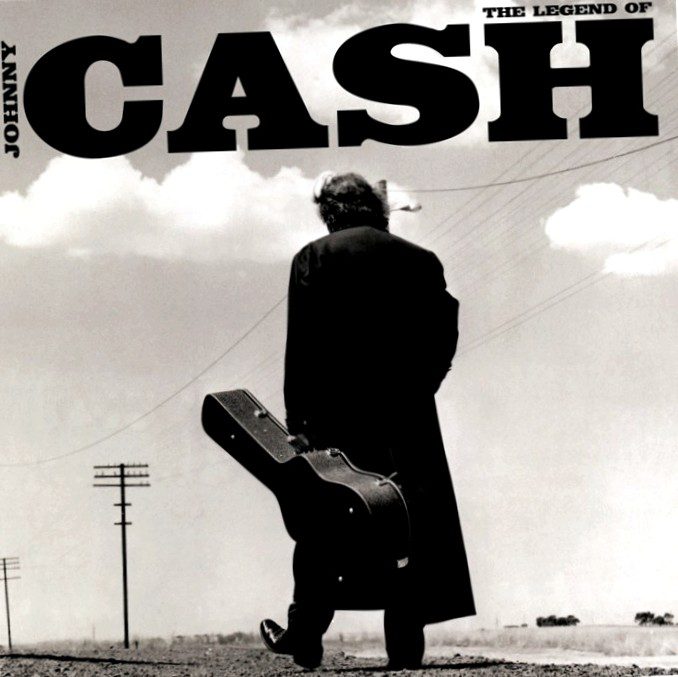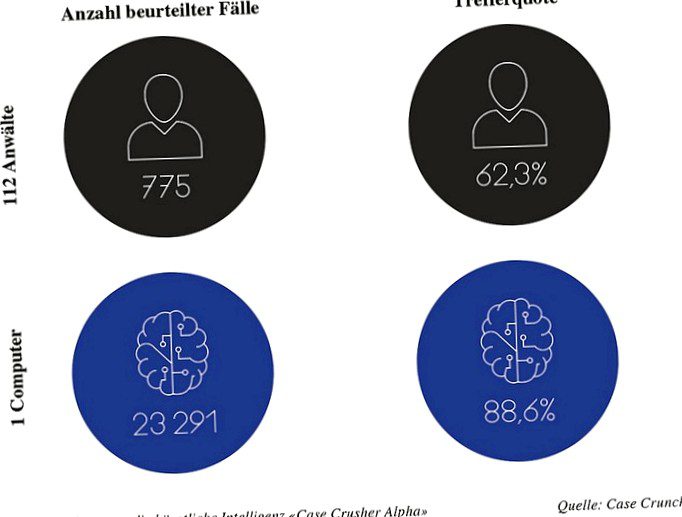A computer went head-to-head with 112 lawyers in London in 2018 – and won. Word processing, numerical analysis, chess: In the battle of machine against man, technology is constantly conquering new fields of work and regularly shows man his limits.

The counterparties in London had to process insurance cases. And the computer was ahead: both in the number of cases processed – that’s hardly surprising, because lawyers sleep at night – and in the number of correct assessments. Are computers better lawyers? Three students of the University of Cambridge wanted to determine the performance of artificial intelligence (AI) and organized an unusual competition: They had 112 London lawyers compete against the artificial intelligence "Case Cruncher Alpha". The machine won the "Lawyer Challenge" hands down.
The experiment
During one week, lawyers processed anonymized British insurance cases. The same cases had previously been assessed by the ombudsman and checked whether an insurance claim exists. "Case Cruncher Alpha" was given the same task in the same amount of time.While the lawyers were able to submit a combined 775 cases at the end of the week, the computer plowed through all the cases fed to it: a total of 23,291.

Computer beats lawyer
But the computer was not only more efficient, it also had the higher success rate. It decided 21,174 cases (86.6 percent) the way the ombudsman had seen them in its preliminary review. The 112 attorneys came up with a pitiful 62.3 percent success rate.
So is "Case Cruncher Alpha" a real competitor for lawyers or even judges? Ludwig Bull, the scientific brain behind the "Lawyer Challenge," waves it off. But artificial intelligence (AI) offers a new method of evaluation, a kind of new benchmark, he said. What happens in courtrooms can thus be quantitatively screened, not only by language but also by mathematics, Bull explains in an interview. While the task was quite schematic (i.e., perfectly tailored to the capabilities of a computer), Bull admits, the computer is unbeatable at such simple routine tasks as checking contracts. This is where AI could support lawyers in the future – allowing them to focus on complex legal issues, he said.
Legal Tech 3.0
Applications that replicate legal steps or perform them autonomously are called legal tech 2.0: The sifting, sorting and archiving of contracts and lawsuits by computer is already more advanced and is offered by various start-up companies. The challenge here is to train the computer the legal categories (machine learning): Here, mostly law students sit together with computer linguists and train the algorithm to translate the legal phrases in a contract into bits and bytes. The best-known example of this is the online platform flightright.de, where you enter the details of your delayed flight and the computer uses them to fight for appropriate compensation from the airlines. The service is said to have been used over 5 million times in recent years – with a 99 percent success rate.
The next stage Legal Tech 3.0 then already requires computers to communicate with each other. This is where products like proprietary currencies (bitcoins u.a.) or smart contracts ("smart contracts"). The challenge is to translate legal logic into computer language. If this is successful, companies will be able to conclude their contracts with each other as smart contracts in the future – then the computer will decide, for example, after delivery of the goods, whether and how much money needs to be transferred.